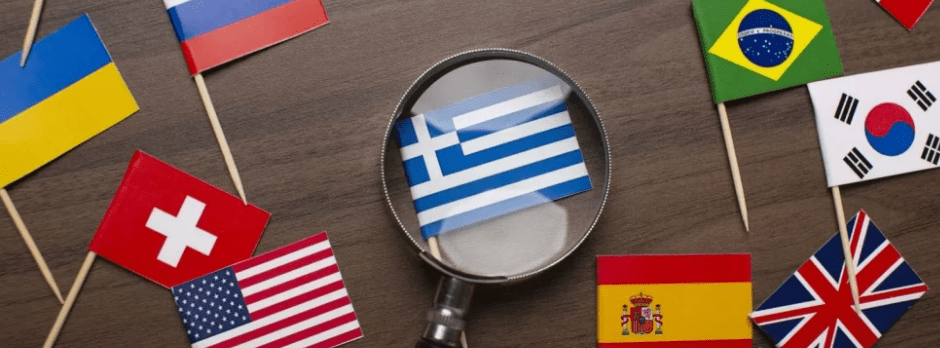

The Sustained and New Competitive Advantages of Outsourcing IT Services
The outsourcing IT services market has long been driven by cost savings. It’s hardly rocket science to say that if your salary costs are lower than...

Outsource IT: The Top Eight Offshore IT Problems and How to Avoid Them
What causes IT outsourcing to go wrong? How can you avoid these problems? The benefits of offshore IT talent are considerable and, for the vast...

Why You Should Outsource These IT and Development Roles in 2024
The Philippines based IT & Development skillsets that others are adding to their teams in 2024. Understand market drivers: the ‘heart’,...

5 Huge Financial Advantages of Outsourcing Your IT & Development Functions to the Philippines
Why the traditional talent ecosystem has broken. How the business case adds up for offshore IT & Development talent. ...

5 Huge Financial Advantages of Outsourcing Your Accountancy Functions to the Philippines
Why the traditional talent ecosystem has broken. How the business case adds up for offshore accountancy talent. Understand how the...

Why You Should Outsource These Finance and Accountancy Roles in 2024
The Philippines based Accountancy and Finance skillsets that others are adding to their teams in 2024. Understand market drivers: the ‘heart’,...

How Can Outsourcing to the Philippines Help Your Business in 2024
So, what is outsourcing? The purest definition of outsourcing is transferring tasks that could be carried out by your ownemployees to be completed...

Outsourcing Finance & Accounting to the Philippines: A Step-by-Step Outsourcing Guide for Business & HR leaders
You’d like to grow your accountancy business? Or perhaps you’re running another kind of business, but resourcing finance and accountancy takes up...

Outsourcing IT and Development to the Philippines: A Step-by-Step Outsourcing Guide for Business & HR leaders
You’d like to grow your IT business? Or perhaps you’re running another kind of business, but resourcing IT and development skills takes up too much...

What are the Frequently Outsourced IT Services?
In the face of the world’s current issues, IT outsourcing has found its value in a wide variety of niches and has grown as one of the more...

How Offshore Developers Can Help Your Software Development
Software development is an integral part of modern-day businesses and provides several key benefits to a company. It involves creating software...

A Quick Guide to Outsourcing IT Tech Support
The way we work is changing rapidly. While working from the office was once the norm, hybrid models and remote working are quickly becoming a...

The Pros and Cons of Outsourced Accounting Services
While some businesses usually hire an in-house accountant, globalization has opened a new option in the finance industry, that of outsourcing...

The Benefits and Types of IT Outsourcing
Delegating a company’s technology functions to an IT outsourcing firm is a smart move, especially for companies looking to access talent...

The Top 5 Finance Outsourcing Philippines Trends
Finance outsourcing has made a significant leap in the industry. The industry’s market value is forecast to grow to $16.7 billion by 2025 at a...

Business Process Outsourcing (BPO) Growth Despite Artificial Intelligence Threat
Business process outsourcing (BPO) is one of the fastest-growing industries in the Philippines, boasting a yearly revenue growth of...

The Challenges and Solutions of Financial Outsourcing
In recent years, finance outsourcing has helped companies keep close track of their accounting while providing businesses access to...

How to Select a Reliable Finance Outsourcing Partner
Your outsourcing partner can either make or break your company. For every finance outsourcing company out there that’s reliable,...

The Best Countries for Financial Outsourcing in Asia
Countries that have a relatively low cost of living are the most preferred finance outsourcing destinations; this is so that companies can...

Why You Should Outsource Your Company’s Accounting Functions
Accounting is one of the most vital, and most tedious functions, of any business, so why not consider outsourcing accounting functions?...

How Does Payroll Outsourcing Work?
Many businesses around the world are starting to realize that payroll services are often a better alternative to in-house processing. This means...

Who is Best to File Your Tax Return?
Sometimes I meet small business owners who don’t think outsourcing is for them. They prefer to be able to see their staff in order to monitor their...

Outsourcing Case Study: Growth of an Australian IT Service Provider
Offering IT Outsourcing Managed Services September 2016 Wins Growth Extended Services Cost Executive Summary Our client for this case study is...

The Sustained and New Competitive Advantages of Outsourcing IT Services
The outsourcing IT services market has long been driven by cost savings. It’s hardly rocket science to say that if your salary costs are lower than...

Outsource IT: The Top Eight Offshore IT Problems and How to Avoid Them
What causes IT outsourcing to go wrong? How can you avoid these problems? The benefits of offshore IT talent are considerable and, for the vast...

Why You Should Outsource These IT and Development Roles in 2024
The Philippines based IT & Development skillsets that others are adding to their teams in 2024. Understand market drivers: the ‘heart’,...

5 Huge Financial Advantages of Outsourcing Your IT & Development Functions to the Philippines
Why the traditional talent ecosystem has broken. How the business case adds up for offshore IT & Development talent. ...

5 Huge Financial Advantages of Outsourcing Your Accountancy Functions to the Philippines
Why the traditional talent ecosystem has broken. How the business case adds up for offshore accountancy talent. Understand how the...

Why You Should Outsource These Finance and Accountancy Roles in 2024
The Philippines based Accountancy and Finance skillsets that others are adding to their teams in 2024. Understand market drivers: the ‘heart’,...

How Can Outsourcing to the Philippines Help Your Business in 2024
So, what is outsourcing? The purest definition of outsourcing is transferring tasks that could be carried out by your ownemployees to be completed...

Outsourcing Finance & Accounting to the Philippines: A Step-by-Step Outsourcing Guide for Business & HR leaders
You’d like to grow your accountancy business? Or perhaps you’re running another kind of business, but resourcing finance and accountancy takes up...

Outsourcing IT and Development to the Philippines: A Step-by-Step Outsourcing Guide for Business & HR leaders
You’d like to grow your IT business? Or perhaps you’re running another kind of business, but resourcing IT and development skills takes up too much...

What are the Frequently Outsourced IT Services?
In the face of the world’s current issues, IT outsourcing has found its value in a wide variety of niches and has grown as one of the more...

How Offshore Developers Can Help Your Software Development
Software development is an integral part of modern-day businesses and provides several key benefits to a company. It involves creating software...

A Quick Guide to Outsourcing IT Tech Support
The way we work is changing rapidly. While working from the office was once the norm, hybrid models and remote working are quickly becoming a...

The Pros and Cons of Outsourced Accounting Services
While some businesses usually hire an in-house accountant, globalization has opened a new option in the finance industry, that of outsourcing...

The Benefits and Types of IT Outsourcing
Delegating a company’s technology functions to an IT outsourcing firm is a smart move, especially for companies looking to access talent...

The Top 5 Finance Outsourcing Philippines Trends
Finance outsourcing has made a significant leap in the industry. The industry’s market value is forecast to grow to $16.7 billion by 2025 at a...

Business Process Outsourcing (BPO) Growth Despite Artificial Intelligence Threat
Business process outsourcing (BPO) is one of the fastest-growing industries in the Philippines, boasting a yearly revenue growth of...

The Challenges and Solutions of Financial Outsourcing
In recent years, finance outsourcing has helped companies keep close track of their accounting while providing businesses access to...

How to Select a Reliable Finance Outsourcing Partner
Your outsourcing partner can either make or break your company. For every finance outsourcing company out there that’s reliable,...

The Best Countries for Financial Outsourcing in Asia
Countries that have a relatively low cost of living are the most preferred finance outsourcing destinations; this is so that companies can...

Why You Should Outsource Your Company’s Accounting Functions
Accounting is one of the most vital, and most tedious functions, of any business, so why not consider outsourcing accounting functions?...

How Does Payroll Outsourcing Work?
Many businesses around the world are starting to realize that payroll services are often a better alternative to in-house processing. This means...

Who is Best to File Your Tax Return?
Sometimes I meet small business owners who don’t think outsourcing is for them. They prefer to be able to see their staff in order to monitor their...

Outsourcing Case Study: Growth of an Australian IT Service Provider
Offering IT Outsourcing Managed Services September 2016 Wins Growth Extended Services Cost Executive Summary Our client for this case study is...
